We’re pleased to bring you the last in a series of candid, in-depth interviews with this year’s Sirens Guests of Honor. We’ll cover a variety of topics relevant to Sirens with each author, from their inspirations, influences, and craft, to the role of women in fantasy literature and forms of resistance in both the craft and industry, as befits our 2015 focus on rebels and revolutionaries. We hope these conversations will be a prelude to the ones our attendees will be having in Denver this October. Today, Hallie Tibbetts interviews Rae Carson.
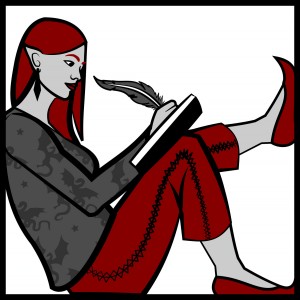
HALLIE: I’ve heard that The Girl of Fire and Thorns was originally sent to editors for publication as an adult fantasy novel, back when young adult books were truly just starting to become the business (and art) that we know today. If you’d kept it as an adult fantasy, how would Elisa’s story have changed—or wouldn’t it have? Is it possible to tell all of Elisa’s story arc in an “adult” vein? Does the trilogy bridge category gaps? And do you think that some stories demand to be told for the adult or young adult market, and not the other way around? Or is this all just an artificial divide?
 RAE: It’s true. The Girl of Fire and Thorns was initially sent to editors of adult fantasy. I had a small offer from one of them, but it was roundly rejected by everyone else for being too difficult to market.
RAE: It’s true. The Girl of Fire and Thorns was initially sent to editors of adult fantasy. I had a small offer from one of them, but it was roundly rejected by everyone else for being too difficult to market.
The editor whose offer I fielded wanted more sex, and she wanted it sooner in the text. I would have happily complied. It would have been a slightly different story, but it would have been an interesting one, I think.
“Young adult books” as a reading category is wholly artificial, but it’s useful as a marketing tool. As a reading category, it erroneously assumes a few things: 1) There are specific books only teens want to read. 2) There are specific books only adults want to read. And implicit in those two assumptions is 3) Some kinds of books are better/more valuable than others.
Teens are perfectly capable and desirous of reading books for adults. And vice versa. From a marketing standpoint, though, it makes sense to identify books that are generally about coming-of-age issues. So when readers want that specific subject matter, they can browse in a ready-made section of the bookstore.
Some have argued that all books are actually marketed to adults, because adults are the ones with buying power. So, teen novels are books that grown-ups feel comfortable putting their moral imperative behind and pushing on children. If true, this further justifies the existence of a marketing category, but it’s a shitty lifestyle choice, if you ask me. It takes away agency from teens who are highly qualified to determine their own reading choices.
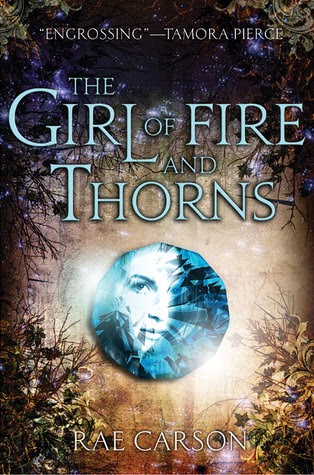 I must add that I wholly support having a young adult marketing category. It’s an excuse for publishers to produce tightly plotted books with wonderful covers and epic stakes—without apology. It’s a way for teens to find books that treat them like valid human beings. And because young adult novels are officially “children’s books,” it means that society has deemed it acceptable for women authors to be successful writing them.
I must add that I wholly support having a young adult marketing category. It’s an excuse for publishers to produce tightly plotted books with wonderful covers and epic stakes—without apology. It’s a way for teens to find books that treat them like valid human beings. And because young adult novels are officially “children’s books,” it means that society has deemed it acceptable for women authors to be successful writing them.
I can’t emphasize this last point enough. Just like with The Girl of Fire and Thorns so many years ago, adult publishers of epic fantasy are simply not as welcoming to manuscripts written by women. When they offer for books, those offer amounts are often a fraction of what a woman can get from a young adult publisher. When those books get published, they too easily disappear, drowned in the deluge of marketing support, store placement, and review coverage of their male-authored counterparts. Invisibility is the most difficult issue facing female authors of epic fantasy today.
Obviously, I would prefer to live in a world with gender parity. Failing that, I’ll take “young adult” as a marketing category, thank you very much. In the meantime, Kate Elliot and I have promised ourselves a commiserating drink over this exact issue. You’re all invited.
HALLIE: When I first heard about The Girl of Fire and Thorns, I had an “Oh, ha ha, magical bellybutton girl” reaction—that, in retrospect, makes me feel appropriately ashamed and regretful, since when I read it, I was hooked from the first sentence. Also, an advance copy of The Crown of Embers showed up at my house the same day I acquired a stationary bike, and I thought I’d just pedal while I read a chapter or two, but I ended up biking for almost three hours because that’s how long it took to finish the book. Have you had any reading experiences that completely absorbed you? What makes you as a reader happy and satisfied with a story?
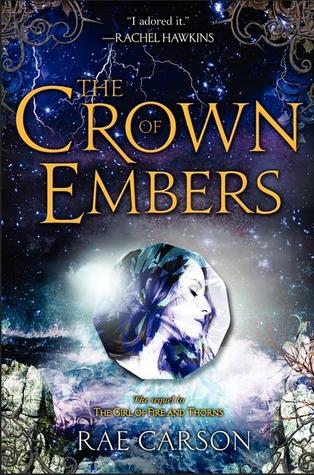 RAE: I’m glad The Crown of Embers gave you such a good workout!
RAE: I’m glad The Crown of Embers gave you such a good workout!
Recently, I was completely absorbed by Neal Stephenson’s Seveneves. Which is odd. Usually, there must be a character I empathize with, someone who feels so real and compelling that I can’t stop turning pages. Seveneves, on the other hand, is only fifty pages of character and plot shoehorned into a 900-page dissertation on orbital mechanics and sustainable space habitats. I couldn’t get enough.
So I suspect my actual answer is that I don’t always know what’s going to click. Books are so subjective and unpredictable. But it’s one of life’s greatest pleasures when a book surprises and delights me the way Seveneves did.
HALLIE: One of my favorite things to read (and watch and explore) is the concept of a “found family.” Walk on Earth a Stranger is exemplary of that. What drew you to writing about it, and were there times in your life when you went through a similar experience (though hopefully not as a result of a dastardly uncle)?
RAE: I did go through a similar experience, and alas, it was a result of a dastardly uncle. Forgive me if I don’t go into detail about it. Suffice it to say that my family betrayed my trust in the worst possible way, and I have found power, healing, and acceptance with friends who are precious to me beyond words—my new family. So the theme of “found family” is very close to my heart, and I will probably continue to write about it for the rest of my life.
HALLIE: Would you please describe some of the research you did for Walk on Earth a Stranger. The details were so realistic that I was in that caravan with Lee: the rocky route west, with its dwindling food supplies and lack of medical care; the social attitudes of the time towards Native Americans, African Americans, and gay men; the German migrant families; and issues of wealth, labor, and religion. What were some of your sources?
RAE: My elementary school history textbook was titled My Country ’Tis of Thee, and the cover was an inelegant mishmash of the American flag, George Washington, and the Christian cross. Because of my cloistered upbringing, it wasn’t until the college years that I realized how whitewashed and Christian-washed our history is.
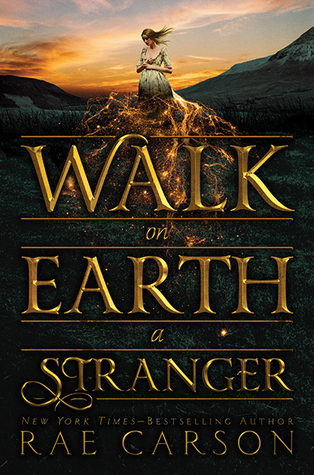 So my goal in writing this book was to find lost voices, those people whose stories have not been represented by mainstream history. I relied heavily on pioneer journals, particularly those written by women. I visited museums all throughout gold country; my favorite of these was the Chinese Historical Society of America in San Francisco. My best discovery of all was John Russell Bartlett’s Dictionary of Americanisms, published in 1848. Never has a dictionary been so full of bigotry and condescension. It was delightful to read, and it gave me a wonderful—and disturbing—view into many of the social attitudes of the day.
So my goal in writing this book was to find lost voices, those people whose stories have not been represented by mainstream history. I relied heavily on pioneer journals, particularly those written by women. I visited museums all throughout gold country; my favorite of these was the Chinese Historical Society of America in San Francisco. My best discovery of all was John Russell Bartlett’s Dictionary of Americanisms, published in 1848. Never has a dictionary been so full of bigotry and condescension. It was delightful to read, and it gave me a wonderful—and disturbing—view into many of the social attitudes of the day.
From a hands-on, practical standpoint, my uncle (the not-dastardly one!) took me into the Sierra foothills and taught me essential gold panning skills. I ended up with a sunburn, a backache, mud stains, and memories—but only a few tiny flecks of gold.
HALLIE: What I admire about your heroines, Elisa and now Lee, is that even though they have amazing powers (magic bellybutton, ability to sense gold) they’re so practical. Even though Elisa’s a princess and Lee could be as rich as she wants, they have such real struggles—eating, managing their reputations, escaping caretakers, and walking for a really, really long time. What draws you to writing such practical heroines? What were some of the inspirations for their struggles? Why is it important to write female characters in these roles? You could have simply written a king with a Godstone or made Lee an actual boy instead of a girl dressing as a boy for most of her journey.
RAE: My most embarrassing moment happened during my senior year of high school, when I was called to the blackboard to write out a French conjugation. The chalk was in my hand, and I was stretching up on my tip-toes, when I heard whispering and giggling behind me.
I turned. The girls in my class were signaling frantically in the direction of my plastic chair, which was smeared with blood.
I had gotten my period in front of French class. Brightly and indisputably.
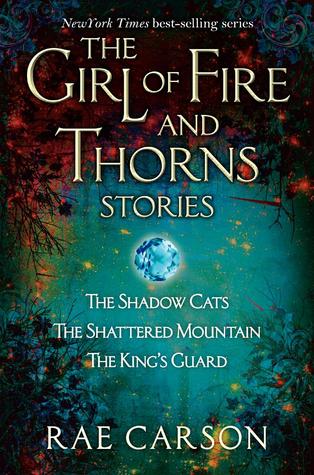 Casually, as if nothing were the matter, I took off my jacket and wrapped it around my waist. I finished my conjugation, sat back down, wiggled back and forth in my seat to wipe up the blood with my jacket, then excused myself to go to the bathroom.
Casually, as if nothing were the matter, I took off my jacket and wrapped it around my waist. I finished my conjugation, sat back down, wiggled back and forth in my seat to wipe up the blood with my jacket, then excused myself to go to the bathroom.
This incident should have been socially disastrous. One of the girls who signaled frantically was my personal nemesis, someone who had tortured me since the sixth grade. I expected her to crow about it for days. But she didn’t. In that moment, as crimson was soaking the crotch of my jeans, my nemesis had my back.
That story might make some readers uncomfortable. Smearing menstrual blood on your chair? Crotch!? For heaven’s sake, Rae.
We have a lot of hesitation about some of life’s most practical details, especially those details considered feminine. Not all of us want to be reminded that a girl can be hyper-aware of her fat body, or that she might run out of menstrual rags, or even that walking a really, really long time is really, really arduous.
But we all experience those things. Moments when life’s practicalities threaten to ruin our day, or even our lives. Moments that surprise us. Moments that become tragic when they shouldn’t, or add up to nothing when they should be tragic.
I’m not a literary writer. I don’t think stories are wholly found in those details. Give me dragons, explosions, rebellions, and world-altering stakes any day. But I do think that a rebellion is much more interesting if all the girls in camp get their periods regularly and if their thighs ache from walking so much.
HALLIE: Lastly, tell us about a remarkable woman of fantasy literature—an author, reader, agent, editor, scholar, or someone else—who has changed your life.
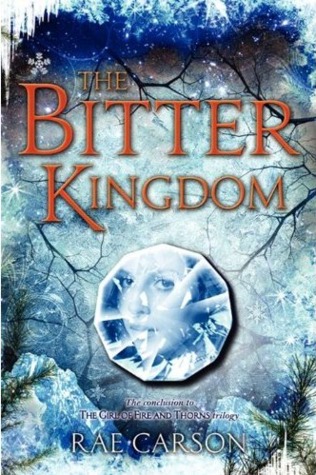 RAE: I’m going to depart from the question a little, simply because I didn’t encounter a lot of women involved in fantasy literature for a very long time. Appalling, I know. See above about the invisibility of female authors.
RAE: I’m going to depart from the question a little, simply because I didn’t encounter a lot of women involved in fantasy literature for a very long time. Appalling, I know. See above about the invisibility of female authors.
I will give a hat tip to my editor, Martha Mihalick of Greenwillow Books, and my agent, Holly Root of Waxman-Leavell. Together, these two fabulous women changed my life by taking a chance on me and tirelessly championing my work.
But the fantasy female who was most formative was fictional: Princess Leia.
I mentioned before that I grew up in a cloistered, religious household. From an early age, I was taught that women had a supernaturally ordained role—raising children, keeping house, supporting the big, strong, money-earning men. It never set right with me. And while I think women ought to be able to choose whatever lifestyle they want—even a supportive, house-keeping, child-rearing one—I always knew that it would be an awkward fit on me, like walking around in scuba flippers instead of sneakers.
Along came Star Wars. I loved everything about that movie, but I loved Princess Leia most of all. Like, her I wanted to be a princess. Like her, I wanted to shoot a laser blaster. And these two were not mutually exclusive. Unlike Cinderella or Sleeping Beauty, Princess Leia was a leader. She wasn’t always kind. She didn’t exist to make the men around her feel good about themselves. Yet she was loved and respected. Did I mention the laser blaster?
I’ve been playing with this juxtaposition of ideals in my own fiction ever since.








Pingback: The weekly web ramble (8/21)
Pingback: The Leaning Pile of Books | Fantasy Cafe | Reviews of Fantasy and Science Fiction Books